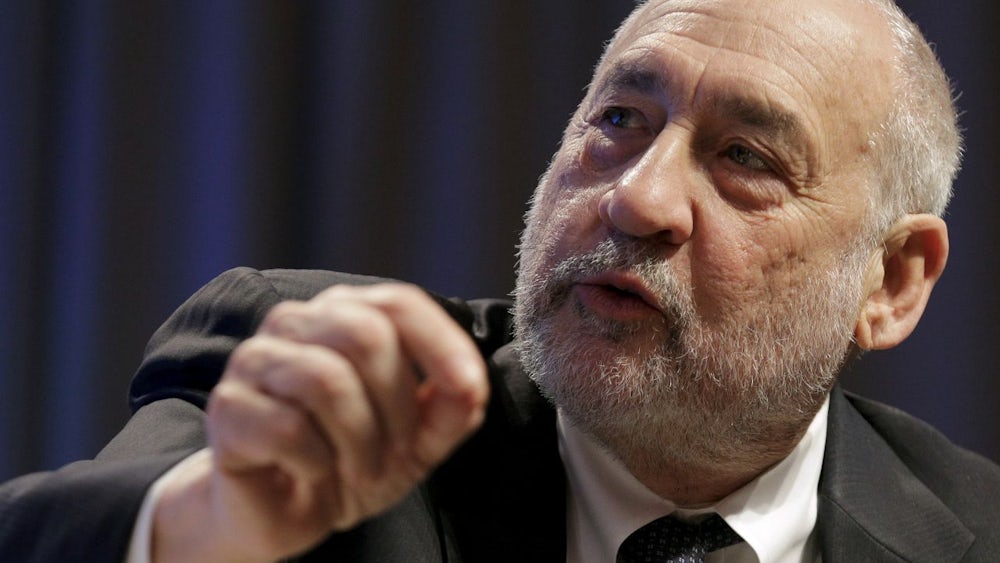German Chancellor Angela Merkel and US President Barack Obama, who will meet next weekend in Hannover, are both profoundly aware of the importance of the climate crisis. Last year both were instrumental in securing the Paris Agreement on climate change.
Yet in Hannover they are poised to undermine their joint climate legacy by pushing forward the Transatlantic Trade and Investment Partnership (TTIP). Together with its sibling, the Trans-Pacific Partnership (TPP), TTIP has the potential to undercut urgently needed action on climate that the Paris agreement requires.
Meeting the targets set in Paris will require phasing out fossil fuels globally at an unprecedented speed, and leaving as much as eighty per cent of known global fossil fuel reserves underground. Global economic structures for production, investment, and trade will need to be retrofitted. Trillions of investment will need to be shifted from high carbon assets into the infrastructure for low or zero carbon society. New, zero carbon power generation, storage and distribution, and highly efficient housing, new factories and transport networks will need to be built.
The technologies are largely there, but the inertia of the incumbent structures will prevent their rapid implementation. Existing owners of coal, oil and gas assets—among the most powerful companies on earth—will defend their profits and fight needed change. The transformation will need strong leaders and coherent public policies.
Not paying for these large social costs delivers a hidden subsidy
Yet instead of promoting and supporting Merkel's and Obama's laudable efforts on climate, TTIP and TPP would strengthen the hand of the incumbency and cement in place a system that treats the environment as distinct from—and subordinate to—international trade and investment.
Though trade negotiators may treat commerce and climate as separate problems, the emissions driving climate change are in fact an unaccounted cost of the goods and services exchanged in our increasingly complex and globally integrated production and consumption chains. Not paying for these large social costs of pollution in production and global shipping delivers a hidden subsidy to the corporations polluting our global atmosphere.
Any good trade agreement would seek to eliminate distorting subsidies to producers. One cannot have fair trade if firms are not required to pay the environmental costs they impose on society—and in this case, an existential threat to life on the planet. TTIP does nothing to prohibit these hidden subsidies, or other fossil fuels subsidies buried within tax systems.
Under TTIP proposals now on the table, government policies to incentivize more environmentally sustainable goods and services—even with voluntary labeling—can be challenged as illegal "technical" trade barriers. Countries that lose such cases could face millions in sanctions unless they eliminate the regulations.
The investment provisions of recent agreements are worse still, creating the risk of lengthy lawsuits and sizable cash awards to investors if governments seek to reduce these hidden subsidies for greenhouse gas pollution, or ban or tax climate-imperiling products and production methods.
TTIP's investor-state dispute settlement (ISDS) system—even if relabeled as an investment court system—creates an explicit tool for investors to challenge government actions to reduce carbon emissions or other forms of climate pollution. We have already seen that these threats can be effective: indeed, this "chilling" effect on regulation may be what the corporate advocates of ISDS really want.
Investor disputes would be heard in international tribunals made up of private sector attorneys. Arbitrators in this system have repeatedly interpreted trade agreements to mean that changes to the policy environment harming their bottom line violate investor rights and deserve compensation, sometimes amounting to hundreds of millions—and potentially billions—of taxpayer dollars.
Corporations in carbon-intensive industries are some of the biggest users of these ISDS mechanisms. In January, the energy company TransCanada launched such a challenge against President Obama's decision to reject the Keystone XL pipeline, demanding $15 billion in compensation using the North American Free Trade Agreement's (NAFTA) investor arbitration system. The American firm Lone Pine is challenging a moratorium on hydrofracking ("fracking") under the St. Lawrence River in Canada.
TTIP and TPP would expand ISDS coverage, empowering tens of thousands of additional corporations use of this system, including to demand government compensation over a new type of claim relating to contracts for the "exploration, extraction, refining, transportation, distribution or sale" of government-controlled natural resources like "oil, natural gas, ... and other similar resources".
TTIP is arguably not even good economics. As a recent study by Frank Ackerman notes, the projected benefits of TTIP are based almost entirely on removal of "non-tariff barriers to trade"—essentially, regulations. TTIP proponents argue that regulations limit trade, and "harmonizing" standards in the EU and the US TTIP would remove these "obstacles".
TTIP could dwarf their other laudable achievements
Regulations are not, however, just arbitrary impediments to commerce. On the contrary, they are often designed to protect and promote public health, consumer safety, citizen rights, sustainable communities and a healthy environment. In democracies they often reflect deeply held public values and produce real economic benefits. The process of "harmonization" proposed for TTIP would set a regulatory ceiling based on the weaker of EU or US standards, and make downward "harmonization" hard to avoid.
Proponents of TTIP tally up the costs of the regulations, but consistently ignore the benefits of protecting workers, health and the environment. A better measure of GDP would reflect these benefits. In all likelihood, with such a measure of "true GDP," these trade agreements not only increase inequality but even lower GDP.
Crafted in secrecy with the help of corporate lobbyists, and with an eye to courting votes in a Republican-controlled Congress where climate change denial trumps science, no one should be surprised that TTIP and TPP fall short of the "gold standard for 21st century international agreements" touted by the Obama administration. Both Merkel and Obama are reaching for a legacy on trade, but the harmful climate impact of these so-called trade agreements could dwarf their other laudable achievements.

